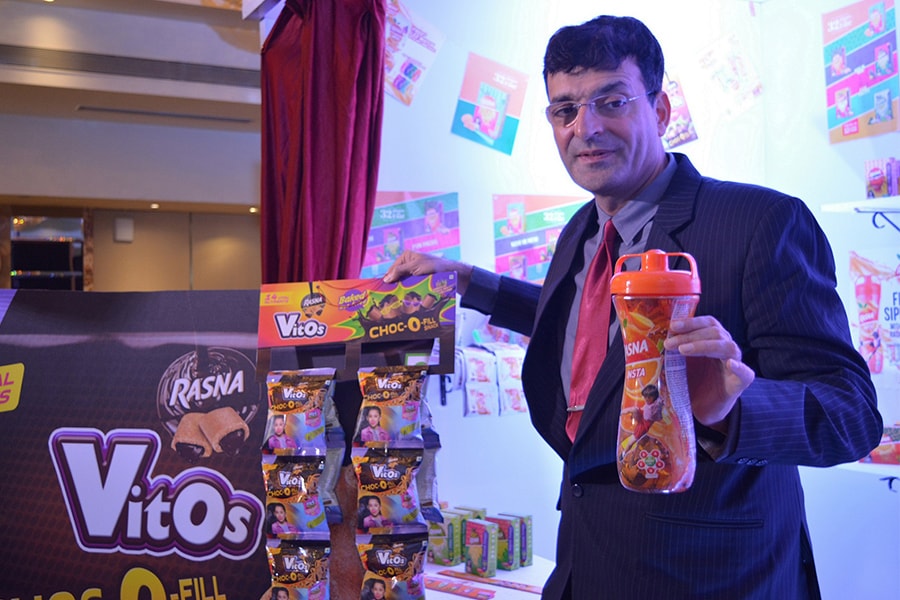Rasna forays into baked sweet snack category
The company eyes a turnover of Rs 250 crore in the next three years from this segment


 Piruz Khambatta, chairman and MD, Rasna
Piruz Khambatta, chairman and MD, Rasna
Homegrown FMCG major Rasna, known for its eponymous instant fruit-based concentrate, on Thursday announced its foray into the baked sweet snack category with the launch of Rasna Vitos at a press conference held in Mumbai. “We have launched the mainline variants – chocolate and strawberry. We will come out with ethnic and western varieties soon,” says Piruz Khambatta, chairman and MD, Rasna Pvt Ltd.
The product will be manufactured at their Hosur plant in Tamil Nadu and Khambatta says he is eyeing a turnover of Rs 250 crore in the next three years from this segment. “This is just by assuming a 5 percent share in the Rs 5,000 crore organised market for snacks,” adds Khambatta. According to market researcher Euromonitor, sweet and savoury snacks have grown by 26 percent, the highest within packaged food segment between 2010 and 2015.
The total investment in the plant, distribution, marketing and manufacturing is Rs 100 crore. The product was launched pan India in the beginning of 2017 and is primarily targeted at kids. It will be exported to neighbouring markets like Nepal, Bangladesh and Sri Lanka this year. Priced at Rs 10, Khambatta admits that the margins aren’t as high as the wafers category. “But Rasna doesn’t work for margins. I have kept the Rs 2 price point [for Rasna satchets] for 20 years. We are launching a Rs 50 family pack and bundle packs for supermarket for Vitos,” he says.
The press conference also saw the launch of a new ad campaign ‘Pyarelal Ka Bachpan Ka Pyar’, conceptualised by Scarecrow Communications, which captures the affection for Rasna across age-groups. The total ad budget is Rs 22-25 crore for the period between January and July this year.
While Khambatta refused to share revenue numbers, he said the growth rate for the company was 9 percent in 2016 and 14 percent in 2015. “Last year was bad for the carbonated drinks market. The only thing which grew was juices and powders. It all depends on how long the summer lasts,” says Khambatta.
International business amounts for 30 percent of Rasna’s total turnover. Apart from the powdered drinks, Rasna also exports jams and chutneys. But Khambatta says he has no plans to introduce these in the Indian market “because I don’t like the ‘me too’ attitude. It never works.” The company has two franchisee manufacturing units in Ethiopia and Bangladesh and Khambatta states that Middle East and Africa are strong markets for them.
With expansion into newer product categories, Rasna has strong plans to chart a double digit growth. Currently, the company has a manufacturing capacity of 500 to 600 crore glasses annually from its nine manufacturing facilities across India. The new plant at Chittoor, Andhra Pradesh, would add another 20 percent to its capacity which will help its double digit growth plan. It will “not only strengthen the market share in the powder drink segment, but also compete with fruit drinks,” says the press statement.
Khambatta adds that the company is also looking at inorganic growth domestically, but hasn’t found something yet. “Honestly, there is no point in buying a company in beverage and food. I see an opportunity in nutraceutical market… I would want to acquire companies that have the bandwidth to create functional products. There is a lot of action in that space,” he says.
First Published: Feb 23, 2017, 17:01
Subscribe Now